Changing currents
How a local wildlife group quietly reversed course on a tribal shellfish project
A wildlife group once fiercely opposed a tribal oyster farm inside a protected refuge. Now they’re silent — even as the Tribe takes over management. What changed? A banquet, a lawsuit, and a big shift in tone may hold the clues.
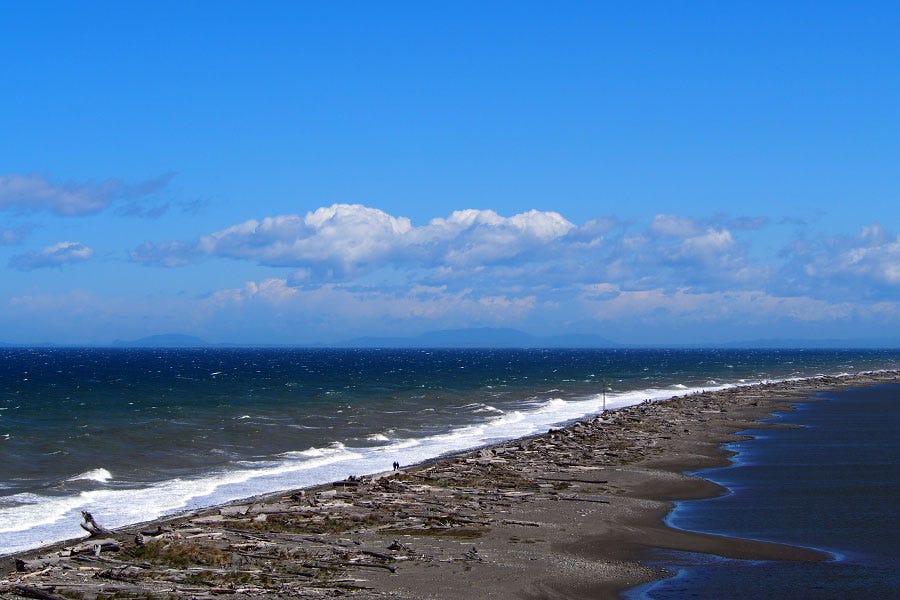
In 2021, the Friends of Dungeness National Wildlife Refuge (FODNWR) voiced serious concerns about a proposed oyster farm backed by the Jamestown S’Klallam Tribe. The group warned that the project posed risks to migratory birds, eelgrass beds, and the federally protected refuge itself.
Four years later, the Friends’ public stance has shifted dramatically. Their recent newsletters suggest a more supportive view of the Tribe’s involvement with the refuge — calling the transfer of management a “historic agreement” that the president was “honored” to attend.
What prompted the shift? That remains unclear.
While opinions can evolve, such a sharp change — especially one without any public explanation — raises questions, particularly when viewed alongside recent legal developments and evolving relationships.
Then: Warnings and alarm bells
In its Summer 2021 newsletter, FODNWR detailed a range of objections to the Tribe’s oyster project. The proposed aquaculture operation, which included 80,000 oyster bags and motorized boats traversing protected waters, was described as potentially “calamitous” to birds and habitat. The group encouraged members to contact the U.S. Fish and Wildlife Service (USFWS) and oppose the plan, citing incompatibility with the refuge’s conservation mission.
They expressed concern that human activity — including lights, noise, and boat traffic — during critical seasonal closures would disrupt the sensitive ecosystem Dungeness is meant to protect.
Now: A shift in tone — but not in transparency
In more recent publications, FODNWR has acknowledged the Tribe’s increasing role in refuge affairs, but with a noticeably different tone. In its Summer 2023 newsletter, the group noted that Jamestown might play a role in managing the refuge — without any of the past environmental reservations.
That change coincided with a new venue for their annual Volunteer Appreciation Banquet: the Cedars at Dungeness golf course, owned and operated by the Jamestown S’Klallam Tribe.
The timing may be coincidental. There’s no suggestion of impropriety. But for some longtime observers, the banquet’s location and the group’s silence on an ongoing federal lawsuit involving the Tribe raise questions about how — and why — the Friends have reframed their position.
Legal challenges proceed without the Tribe in the room
The core legal dispute hasn’t gone away. In fact, it intensified this month.
On May 15, 2025, a federal district court ruled that a lawsuit brought by several environmental groups against the U.S. Fish and Wildlife Service could proceed. The issue: the agency allowed the Jamestown Tribe to begin planting oysters in the refuge without completing a required compatibility determination, as mandated by the National Wildlife Refuge System Administration Act.
The Tribe is not a direct party in the case. Because of sovereign immunity, they cannot be compelled to participate — and their attorneys have cited that sovereignty as a reason for declining to appear in court.
A line from their legal filing stood out to some readers:
“Without the farm the Tribe also cannot meet its goal to become independent from the federal government, which is key to its sovereign status.”
The filing didn’t say exactly when the sovereign nation will complete its goal of becoming independent from the federal government. The court, however, did not accept the Tribe’s argument that the case should be dismissed due to its absence. In a straightforward ruling, the judge stated:
“Therefore, it is hereby ORDERED that Jamestown’s motion to dismiss, Dkt. 44, is DENIED.”
According to Turtle Talk, a respected Native law blog, the court found that the lawsuit is about whether the federal government followed its own environmental laws — not about challenging tribal sovereignty directly.
A public resource, a private shift
What remains unanswered is why FODNWR, once so vocal in defense of the refuge, has chosen not to publicly comment on the legal proceedings or its evolving relationship with the Tribe.
The refuge itself — home to tens of thousands of shorebirds and a critical stopover in the Pacific Flyway — belongs to the public. It is protected under federal law, and any changes to its use or management deserve a robust and open public process.
While partnerships between tribes and federal agencies can offer meaningful stewardship opportunities, clarity is crucial — especially when the same partners also operate commercial enterprises within the refuge’s boundaries.
An unexpected end
In a final twist, the Friends of Dungeness National Wildlife Refuge — once a leading voice in protecting the refuge — quietly announced their dissolution on May 8, 2025.
“Last Fall, the Jamestown S’Klallam Tribe assumed management of the Dungeness NWR and Protection Island NWR... As a result, this new management no longer needed most of the services that the Friends offer.”
After exploring a pivot toward supporting other refuges in the complex — like the San Juan Islands NWR — the group said that effort “proved unsuccessful.” The board has now dissolved the nonprofit and will donate its remaining assets to the Friends of Olympic National Park.
There was no mention of the lawsuit, the reversal of position on the oyster project, or the broader implications of handing refuge management to a non-federal entity.
For longtime members and the public who followed the group’s journey from advocacy to apparent alignment, the closure may leave more questions than answers.
What to Watch Next
Will USFWS disclose the terms of any management discussions with the Tribe?
Will the dissolved FODNWR share why it shifted positions — or whether members were consulted?
Will courts compel a formal environmental review of the oyster operation before it expands further?
The public deserves a full picture — not just snippets in newsletters or glimpses through court filings.
For Those Seeking Answers
📞 Contact USFWS to inquire about the refuge’s future management:
fw1wamaritime@fws.gov | (360) 457-8451
🔍 Follow the Lawsuit and support transparency through:
www.protectpeninsulasfuture.org


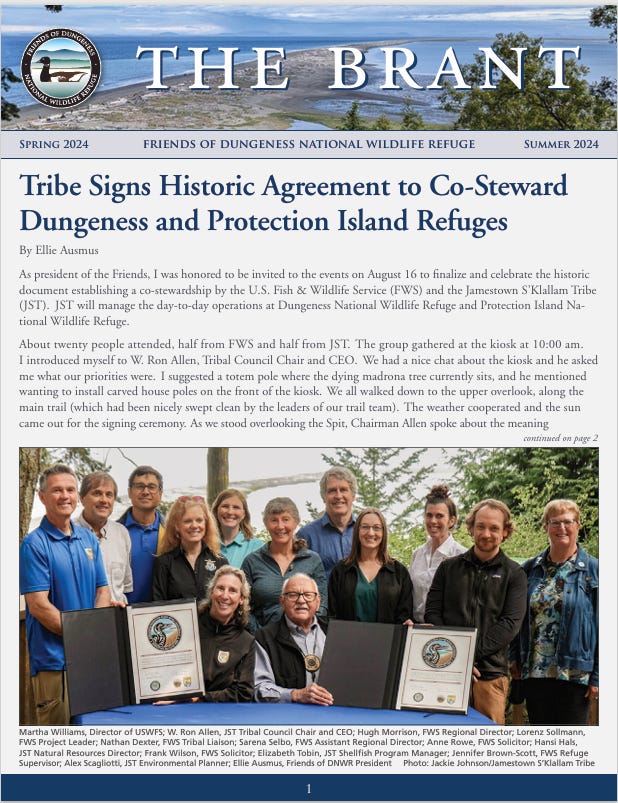
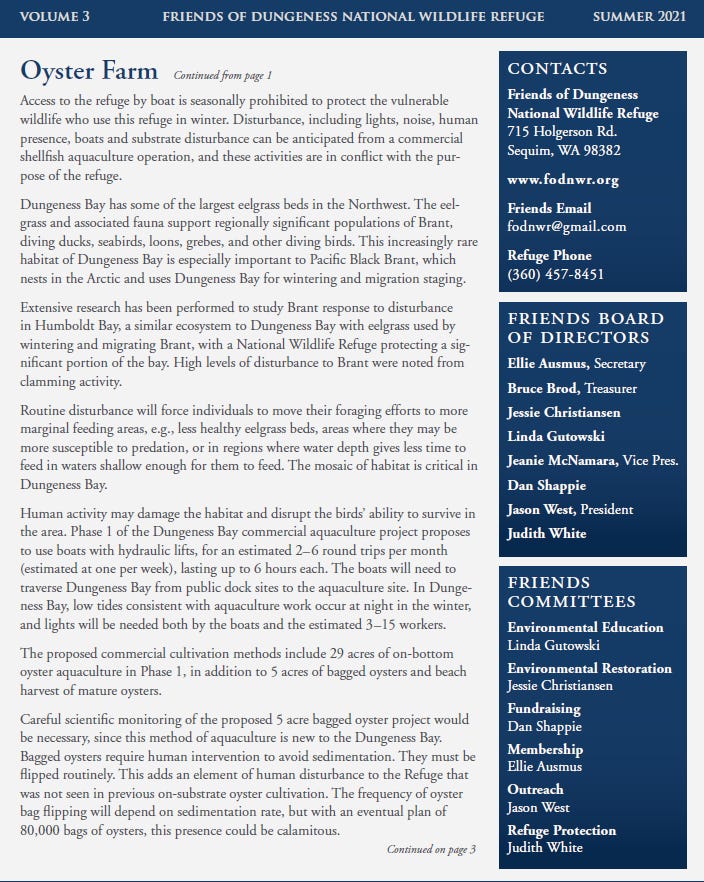

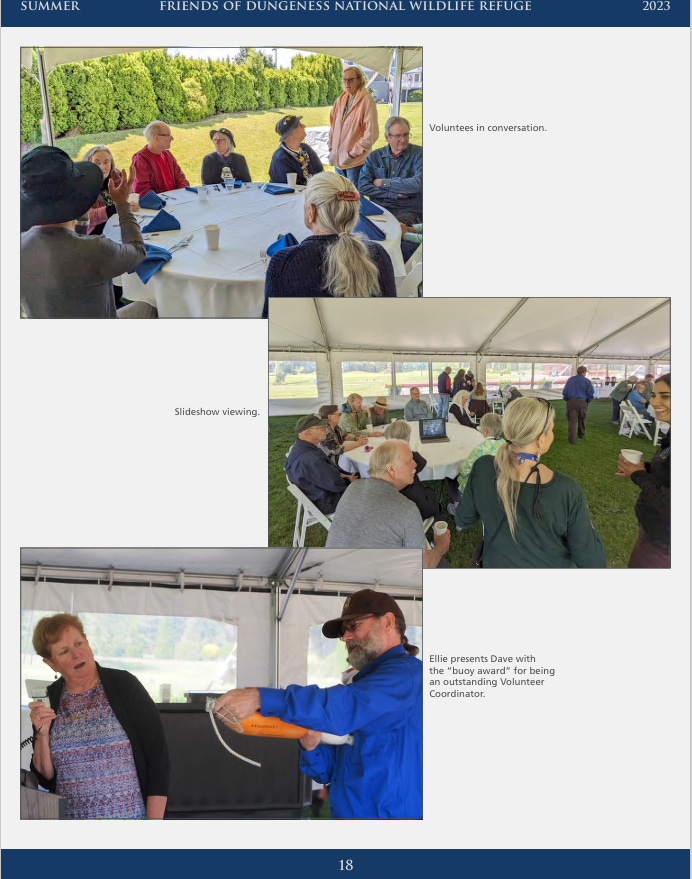
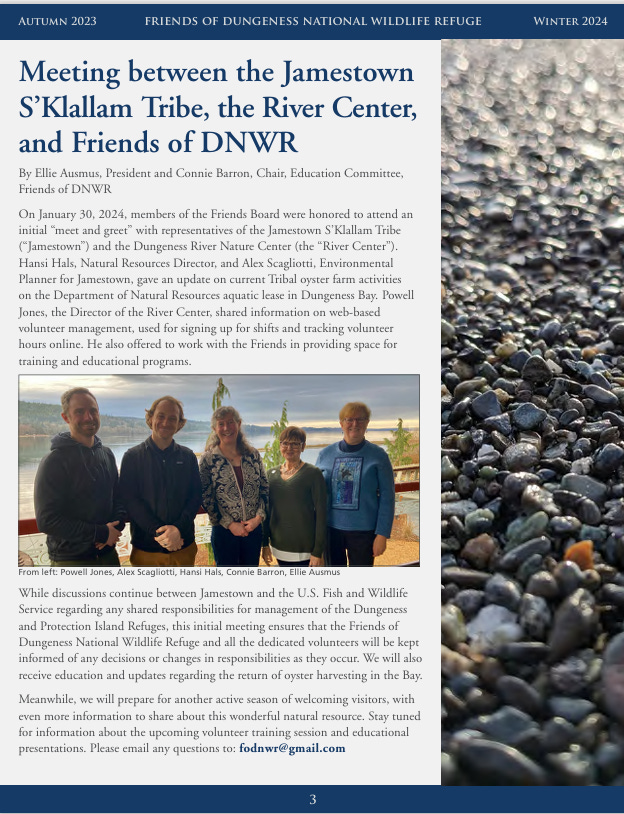
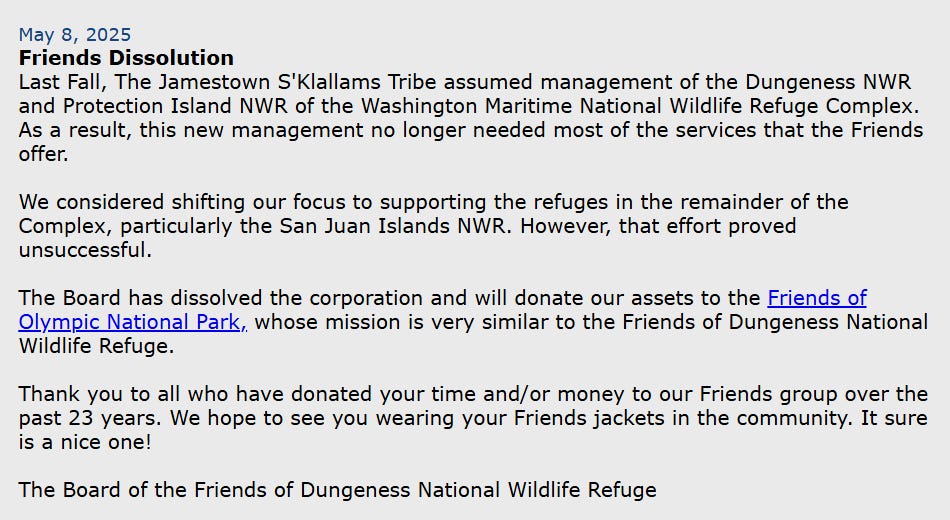
Ive never been too fond of the tree hugger type groups. But sometimes they have at least semi valid issues. Raising awareness is one thing. But they always seem to go to far. Always a lawyer or two making money on both ends. Funny how that works. But the tribe takes it to a new level. Its only bad if some one else is doing it is their motto. Im sure if some non indian group wanted to start an oyster farm they would be shmoozing up to the enviromental groups. And the part that makes it the worst to me is probably, most of the oysters will end up on foreign plates. Its only ok to rape the country if indians do it. And lawyers make money.
Give 'em a cookie and a glass of warm milk and these elderly NGO volunteers will agree... You said, woke, diversity, inclusion, they're in!